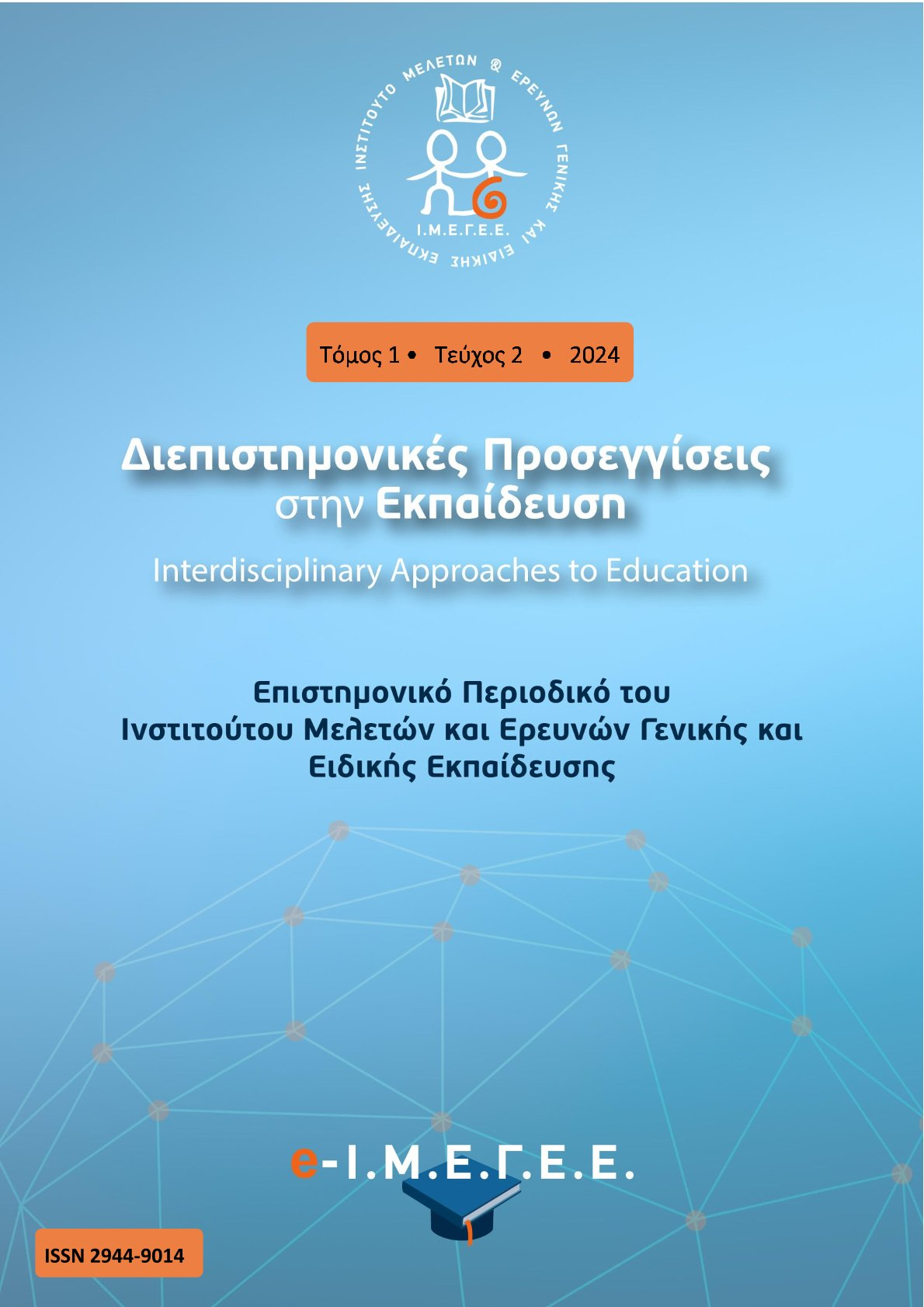Επείγουσα απομακρυσμένη διδασκαλία και ΔΕΠ-Υ. Δυσκολίες και τρόποι αντιμετώπισης

Περίληψη
Το συγκεκριμένο άρθρο παρουσιάζει αποτελέσματα από έρευνες που έχουν διεξαχθεί στην Ελλάδα και στο εξωτερικό, και αφορούν τις δυσκολίες που αντιμετώπισαν φοιτητές/τριες με ΔΕΠ-Υ κατά την επείγουσα απομακρυσμένη διδασκαλία, καθώς και τους τρόπους αντιμετώπισης που εφαρμόστηκαν για να αντιμετωπιστούν αυτές οι δυσκολίες. Στόχος αυτού του άρθρου είναι η παρουσίαση των δυσκολιών που αντιμετώπισαν οι φοιτητές/τριες με ΔΕΠ-Υ κατά την επείγουσα απομακρυσμένη διδασκαλία, καθώς και των τρόπων αντιμετώπισης των δυσκολιών αυτών. Η συλλογή δεδομένων πραγματοποιήθηκε μέσω της βιβλιογραφικής έρευνας, και πιο συγκεκριμένα μέσω της ανασκόπησης πεδίου. Τα αποτελέσματα που συλλέχθηκαν έδειξαν πως τα προβλήματα που αντιμετώπισαν οι φοιτητές/τριες κατά την επείγουσα απομακρυσμένη διδασκαλία αφορούσαν την κατανόηση των διαλέξεων, τα συναισθηματικά προβλήματα και τη διαχείριση του χρόνου. Οι τρόποι αντιμετώπισης που χρησιμοποιήθηκαν για να αντιμετωπιστούν τα προβλήματα αυτά ήταν πολλοί, και προτείνονταν από τους εκπαιδευτικούς και από τους ίδιους τους φοιτητές/ τις φοιτήτριες.
Λεπτομέρειες άρθρου
- Πώς να δημιουργήσετε Αναφορές
-
Κεχαγιά Σ., & Αλιβίζος Σ. (2024). Επείγουσα απομακρυσμένη διδασκαλία και ΔΕΠ-Υ. Δυσκολίες και τρόποι αντιμετώπισης. Διεπιστημονικές Προσεγγίσεις στην Εκπαίδευση, 1(2). https://doi.org/10.12681/.38453
- Ενότητα
- Articles
Ενημέρωση για τα πνευματικά δικαιώματα
Οι συγγραφείς των άρθρων που δημοσιεύονται στο περιοδικό διατηρούν τα δικαιώματα πνευματικής ιδιοκτησίας επί των άρθρων τους, δίνοντας στο περιοδικό το δικαίωμα της πρώτης δημοσίευσης. Άρθρα που δημοσιεύονται στο περιοδικό διατίθενται με άδεια Creative Commons 4.0 και σύμφωνα με την άδεια μπορούν να χρησιμοποιούνται ελεύθερα, με αναφορά στο/στη συγγραφέα και στην πρώτη δημοσίευση για μη κερδοσκοπικούς σκοπούς και με δικαίωμα τροποποίησης μόνον με παρόμοια διανομή (αν αναμείξετε, τροποποιήσετε, ή δημιουργήσετε πάνω στο υλικό, πρέπει να διανείμετε τις δικές σας συνεισφορές υπό την ίδια άδεια όπως και το πρωτότυπο).
Απαγορεύεται η αντιγραφή, αποθήκευση και διανομή της παρούσας εργασίας, εξ’ολοκλήρου ή τμήματος αυτής, για εμπορικό σκοπό. Επιτρέπεται η ανατύπωση, αποθήκευση και διανομή για σκοπό µη κερδοσκοπικό, εκπαιδευτικής ή ερευνητικής φύσης, υπό την προϋπόθεση να αναφέρεται η πηγή προέλευσης και να διατηρείται το παρόν µήνυµα. Ερωτήματα που αφορούν τη χρήση της εργασίας για κερδοσκοπικό σκοπό πρέπει να απευθύνονται προς τους συγγραφεα-είς. Οι απόψεις και τα συμπεράσματα που περιέχονται σε αυτό το έγγραφο εκφράζουν το-ους συγγραφέα-είς και δεν πρέπει να ερμηνευθεί ότι αντιπροσωπεύουν τις επίσηµες θέσεις του Ινστιτούτου Μελετών και Eρευνών Γενικής και Ειδικής Εκπαίδευσης (Ι.Μ.Ε.Γ.Ε.Ε.).
Copyright notice
Authors retain copyright and grant the journal right of first publication with the work simultaneously licensed under a Creative Commons Attribution NonCommercial License that allows others to share the work with an acknowledgement of the work's authorship and initial publication in this journal.


